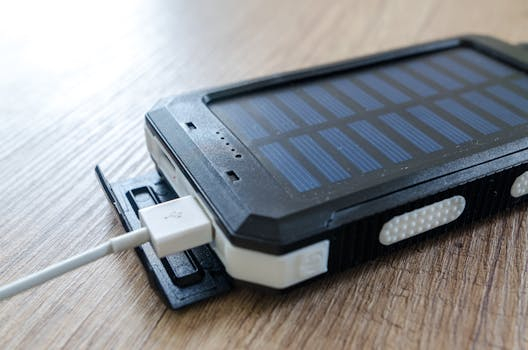Solar-Powered Micro-Processors: Renewable Energy Driving Miniature Computing
As the world becomes increasingly reliant on technology, the demand for more efficient and sustainable energy sources has never been greater. One emerging solution to this issue is the use of solar-powered micro-processors. These miniature devices are not only powered by renewable energy, but they are also driving advancements in computing and technology as a whole. In this article, we will delve into the world of solar-powered micro-processors and explore how they are shaping the future of miniature computing.
What are Solar-Powered Micro-Processors?
Solar-powered micro-processors are tiny computing devices that use solar energy as their primary power source. They are essentially miniature versions of traditional computers, with the added advantage of being powered by renewable energy. These devices typically consist of a central processing unit (CPU), memory, input/output components, and a solar panel to generate electricity.
The concept of solar-powered micro-processors is not a new one. In fact, researchers have been exploring the use of solar energy in computing since the 1970s. However, it is only in recent years that advancements in technology have made these devices a viable alternative to traditional computing systems.
The Advantages of Solar-Powered Micro-Processors
1. Renewable Energy Source
One of the primary advantages of solar-powered micro-processors is their use of renewable energy. Solar panels are capable of converting sunlight into electricity, making them a clean and sustainable source of power. As the world continues to look for solutions to reduce carbon emissions and combat climate change, the use of renewable energy sources such as solar power is becoming increasingly vital.
2. Cost-Efficient
Solar-powered micro-processors are also highly cost-efficient. Since they do not rely on traditional electricity, users can save money on energy bills. Additionally, the cost of solar panels has significantly decreased in recent years, making these devices more affordable than ever before.
3. Portability
Solar-powered micro-processors are also highly portable, making them ideal for use in remote or off-grid locations. This is particularly beneficial for industries such as agriculture, where traditional computing systems may not be feasible. These devices can also be used in areas with limited access to electricity, providing a reliable source of computing power.
4. Minimal Maintenance
Another advantage of solar-powered micro-processors is their minimal maintenance requirements. Unlike traditional computers, which require constant power supply and cooling systems, these devices can operate independently with minimal monitoring or upkeep.
The Role of Solar-Powered Micro-Processors in Driving Miniature Computing
Solar-powered micro-processors are not just an eco-friendly alternative to traditional computing systems; they are also driving advancements in miniature computing. As technology continues to shrink in size, the demand for smaller and more efficient devices is increasing. This is where solar-powered micro-processors are making a significant impact.
The use of these devices in innovative products such as wearable technology, smart home devices, and even medical equipment is already becoming more prevalent. These miniature computers can perform a range of tasks and are instrumental in the development of the Internet of Things (IoT), where everyday objects are connected and controlled through the internet.
The Future of Solar-Powered Micro-Processors
The future for solar-powered micro-processors looks bright. With the continual advancements in solar panel technology and the increasing demand for sustainable energy sources, these devices are poised to become even more prevalent. As they become more mainstream, we can expect to see a whole new range of innovative products that utilize their capabilities.
Furthermore, the integration of solar-powered micro-processors in various industries, such as agriculture, healthcare, and transportation, has the potential to make a significant impact on global sustainability efforts. These devices can provide a reliable and eco-friendly source of computing power, contributing to a more sustainable world.
Conclusion
Solar-powered micro-processors are not just a futuristic concept; they are already making an impact on the world of miniature computing. These devices offer a range of advantages, from using renewable energy to driving advancements in technology. As we look towards a more sustainable future, these miniature devices are sure to play a crucial role in shaping the way we live and work.
So, the next time you use your wearable device or control your smart home, remember that behind its miniature size lies the power of solar energy, driving these remarkable advancements in computing.











